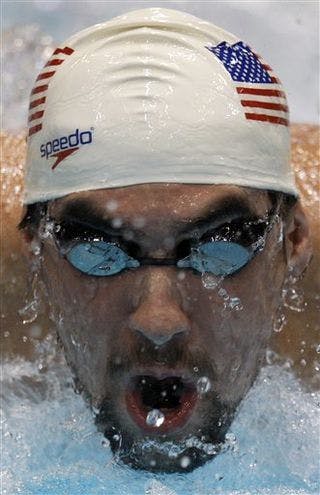As you are reading this, the best of the best are over in London competing in the Summer Olympic Games.
Why are we so captivated by the Olympic drama? Because, it’s the ultimate reality TV, and I believe we enjoy witnessing greatness in action. We get to watch athletes at their peak, breaking records, going beyond normal human limits, and defying the odds.
“Spectacular performance is the result of unspectacular preparation”
spec·tac·u·lar (spek-tak-yuh-ler),adjective
- of or like a spectacle; marked by or given to an impressive, large-scale display.
- dramatically daring or thrilling. ex. a spectacular dive from a cliff.
While we are now getting to witness their spectacular Olympic performance on the greatest stage, what we don’t witness are the unspectacular performances for hours on end every single day for the four years leading up to the Olympics.
In other words, we don’t see all their training.
Gold medalists like Michael Phelps, Gabby Douglas and Nathan Adrian are waking up before dawn and putting in hours of training in the water or in the gym. They invest four years pushing their minds and bodies further than others are willing to go. They hold themselves to the strictest of diets and are fiercely protective of their sleep and rest.
Why? Because they know the investment in those thousands of hours of unspectacular performances will yield a tremendous return when the championship moment presents itself.
When training counts the most
In the case of U.S. Olympic gold medal swimmer Nathan Adrian, four years of training came down to one 47.52 second performance and the smallest margin of victory — one thousandth of a second. Three hundredths of a second slower and Adrian doesn’t even medal.
On the wall at the former Naval Fighter Weapons School (aka Top Gun) at NAS Miramar, San Diego, there is a sign that reads:
“Under pressure, you do not rise to the occasion; rather you sink to your level of training.”
Truer words were never spoken. Take for example, Michael Phelps 2008 performance at the Beijing Olympics in the 200 meter butterfly. Halfway through the race, a leak in his goggles filled them with water thus rendering him blind for the remainder of the race.
This unforeseen problem would have derailed most athletes, but Phelps was not like most athletes. Why? Because it was not an unforeseen problem.
When the day came that this happened, Phelps didn’t rise to the occasion, he sank to his level of training which included a contingency plan for goggle malfunction. Leading up to the 2008 Olympics, his coach had him practice swimming in the dark and had him visualize successfully dealing with goggle malfunction.
Additionally, Phelps trained himself to have the habit of counting the number of strokes he took and specifically how many strokes it took to reach the wall. He couldn’t see the wall but he sure did reach it, beating the previous world record by three hundredths of a second and winning gold.
“Training alone is not enough”
I share this because regardless of whether you are an athlete or an executive, you can’t win a championship without training. And I hate to break it to you, but training alone is not enough.
I mention this time and time again in my peak performance workshops; you have to not only train like a champion but also eat, sleep and rest like a champion, in order to be a champion! It is the sum total of all those unspectacular performances that allow you to be spectacular when the big moment arrives.
I like to say that we are all always training. If after you read this article you go to Facebook or play angry birds, you are training … training yourself to be mediocre. We are the sum total of our habits and habits that go unchecked become ruts. Ruts and bad habits don’t win championships. They won’t help you land that promotion, ace the interview, nail the presentation or if you’re in sales, get you to the President’s Club.
What will help you is executing the right habits; this is the key to why winners win.
Why YOU need to prepare like a champion
Sure it takes talent too but executing the proper cornerstone habits in your daily life primes the pump so to speak for championship caliber performance. Elite performers in any industry they make sure proper diet, sleep and training are all foundational elements of their life.
The 2008 story of Phelps’ goggles became the stuff of legends and gave the commentators plenty to talk about for days after the race, and has even been referenced during this summer’s Olympic Games. Imagine the NBC Olympic commentators critiquing you and your organization’s training, work ethic and competitiveness. What would they say? Would you medal?
I encourage you to not only take a moment now and rate yourself, but also to have this conversation with your team and ask them to do the same. On a scale of 1-10, with 10 being highest, how well are you training? If your answer is below 9, what would it take to elevate that effort into the 9-10 range? What is stopping you?
The bottom line is that you don’t have to be an athlete to achieve championship caliber results, but you do need to prepare like one. It’s why winners win.
